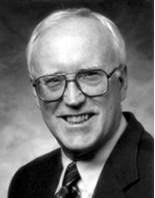Dr. Alonzo L. Hamby, Distinguished Professor Emeritus of History at Ohio University College of Arts & Sciences, wrote an opinion article for Bloomberg.com.
From the early 20th century to the present day, the history of American liberalism has centered on strong presidents ramming “progressive” legislation through hesitant Congresses.
Theodore Roosevelt and Woodrow Wilson initiated the trend in the early 1900s and laid the foundations for today’s activist presidency. They continue to merit study, but their emphasis on issues such as “trust-busting,” child labor and rudimentary agricultural subsidies seems dated to today’s liberals. The modern age of American liberalism began with Franklin D. Roosevelt and the New Deal, then peaked with Lyndon Johnson and the Great Society. The major project of liberalism — the establishment of a comprehensive social-democratic welfare state — has reached a culmination with the tumultuous start of the Affordable Care Act under President Barack Obama.
The nationalization of access to medical care — first floated by Teddy Roosevelt, given lip service by FDR, made a cornerstone of Harry Truman’s Fair Deal, advocated by John F. Kennedy and achieved for the elderly by Johnson — appears, after a half-century, to have been realized on a universal basis by an improbable president who seemingly came out of nowhere.
American liberalism, long inspired by the national medical care systems of the U.K. and Western Europe, had been handed its Holy Grail by an unexpected paladin, who would be ranked with the giants of its folklore.
How does Obama compare with the two dominant liberal Democrats who preceded him?
About Alonzo L. Hamby, Distinguished Professor Emeritus of History. A graduate of the University of Missouri, Professor Hamby specializes in 20th century U.S. history, especially politics and culture. His books include: Beyond the New Deal: Harry S. Truman and American Liberalism (1973); The Imperial Years: The United States since 1939 (1976); Liberalism and Its Challengers: F.D.R. to Reagan (2d ed., 1992); Man of the People: A Life of Harry S. Truman (1995), and For the Survival of Democracy: Franklin Roosevelt and the World Crisis of the 1930s (2004). Hamby also has received two National Endowment for the Humanities Fellowships, a Harry S. Truman Library Institute Senior Fellowship, a Woodrow Wilson International Center for Scholars Fellowship, and the Ohio Academy of History Distinguished Service Award. Born in Missouri, Hamby graduated from Southeast Missouri State University and earned his Ph.D. from the University of Missouri-Columbia. He is an expert on Harry S. Truman and his presidency.




















Comments